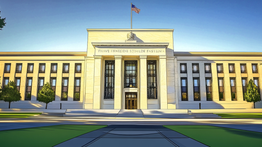

Japan's recent entry into stagflation, marked by stagnant growth and rising inflation, heralds a worrisome phase for its economy and foreshadows potential global financial instability.
In a startling economic development, Japan has found itself ensnared in the throes of stagflation, an economic predicament unseen since the 1970s. This condition, characterized by stagnant economic growth coupled with inflation, is now a reality for the Asian nation, and the United States may be trailing close behind.
The Japanese economy, which recently slipped into recession, is currently caught in a precarious balance. The Bank of Japan is grappling with a weakened economy that is heavily reliant on the crutch of cheap money and historically low interest rates. Simultaneously, the Japanese yen is on a precipitous decline, jeopardizing the nation's financial system and threatening to significantly increase the cost of living for families highly dependent on imported goods.
The central bank faces a daunting challenge: raising interest rates could potentially stabilize the yen and temper inflation, but doing so could exacerbate the economic frailty. For years, the Bank of Japan has navigated this tightrope with measured stimulus and strategic communication, striving to shield the public from the harsh realities of the economic landscape.
However, recent labor developments have added new complexities to the situation. Japanese unions, known for their once-violent 'spring offensive' wage negotiations, have secured unprecedented pay hikes. After decades of wage stagnation, large companies have agreed to 4% increases, while small and medium enterprises have gone even further, with some offering up to a 6% raise. Industry leaders such as Toyota, Honda, and All Nippon Airlines have acquiesced to significant wage demands, with Nippon Steel marking a 12% jump, the highest since 1979. Notably, retailer Aeon's 7% wage increase for its part-time workers signifies a broader impact across the economic spectrum.

The potential entrenchment of inflation within union negotiations is cause for alarm among central bankers, as this phenomenon can prove stubbornly resistant to policy measures once established.
The looming specter of a stagflationary Japan raises the possibility of triggering a global financial crisis of a magnitude not seen since 2008. The risk is amplified by Japan's staggering government debt, roughly equivalent to $60 trillion in U.S. terms. As economic indicators suggest a coordinated onset of global stagflation, including in Europe, America, China, and now Japan, parallels are drawn to the challenges of the 1970s, which were only resolved through dramatic interest rate hikes by the Federal Reserve under Paul Volcker.
🇯🇵 Japan's government debt as share of GDP:
— World of Statistics (@stats_feed) March 3, 2024
1973: 15%
2023: 255%
The current trajectory of government spending, seemingly counterproductive in its inflationary potential, further exacerbates concerns. With President Biden proposing an additional 20% increase in spending, the Eurozone's governmental expenditure nearing half of their entire economy, and Japan considering yet more spending to combat inflation, the global economy appears to be racing towards a repeat of the turbulent 1970s.
In summary, Japan's stagflationary state, coupled with global economic trends, poses a significant threat to worldwide financial stability, potentially marking the onset of a combined crisis comparable to the Great Depression.